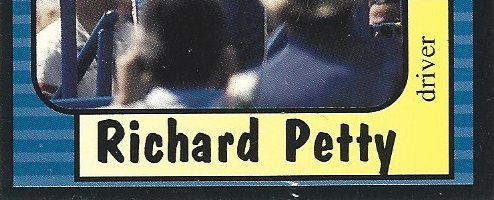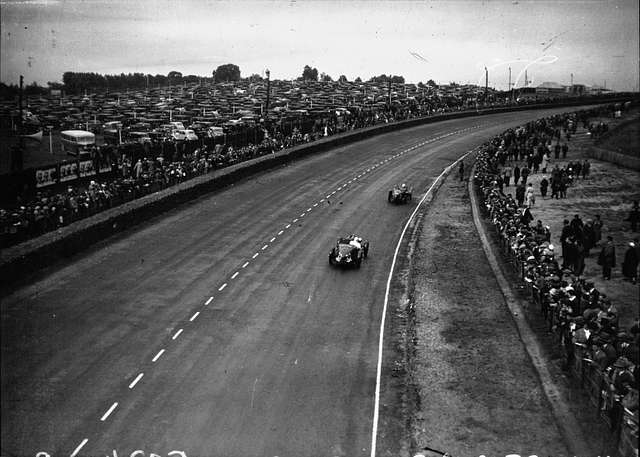Richard Lee Petty (born July 2, 1937), nicknamed “the King”, is an American former stock car racing driver who competed from 1958 to 1992 in the former NASCAR Grand National and Winston Cup Series (now called the NASCAR Cup Series), most notably driving the No. 43 Plymouth/Pontiac for Petty Enterprises. He is one of the members of the Petty racing family. He was the first driver to win the Cup Series championship seven times (a record now tied with Dale Earnhardt and Jimmie Johnson), while also winning a record 200 races during his career. This included winning the Daytona 500 a record seven times and winning a record 27 races in one season (1967). He is the son of Lee Petty and the father of Kyle Petty.


Career Statistics
| Races | 1185 | Average Finish | 11.27 |
|---|---|---|---|
| Wins | 200 | Average Start | 9.5 |
| Top 5 Finishes | 555 | Total Laps Led | 49,920 |
| Top 10 Finishes | 712 | Total Laps | 307,846 |
| Top 20 Finishes | 921 | % of Laps | 84.4% |
| Poles | 123 | DNF’s | 349 |
| Car Number | Races | Wins | Top 5’s | Top 10’s | Top 15’s | Top 20’s | Avg Finish | Avg Start | Poles | Laps Led | DNF |
|---|---|---|---|---|---|---|---|---|---|---|---|
| NASCAR 43 | 1125 | 192 | 526 | 676 | 761 | 868 | 11.3 | 9.7 | 114 | 48,125 | 329 |
| NASCAR 42 | 28 | 2 | 15 | 19 | 23 | 27 | 8.5 | 6.3 | 5 | 902 | 9 |
| NASCAR 41 | 22 | 6 | 14 | 16 | 20 | 20 | 6.7 | 4.1 | 4 | 893 | 6 |
| NASCAR 2 | 5 | 0 | 0 | 0 | 0 | 2 | 22.4 | 11.5 | 0 | 0 | 3 |
| NASCAR 42A | 2 | 0 | 0 | 1 | 2 | 2 | 10.0 | 13.0 | 0 | 0 | 0 |
| NASCAR 142 | 1 | 0 | 0 | 0 | 0 | 1 | 17.0 | 7.0 | 0 | 0 | 1 |
| NASCAR 24 | 1 | 0 | 0 | 0 | 1 | 1 | 13.0 | 13.0 | 0 | 0 | 0 |
| NASCAR 6 | 1 | 0 | 0 | 0 | 0 | 0 | 38.0 | 37.0 | 0 | 0 | 1 |

Richard Petty was awarded the Presidential Medal of Freedom from President George H.W. Bush on December 11, 1992. President Bush made the following remarks:
Barbara and I thank you all very much. Barbara and I are just delighted to have you here on this special occasion. Welcome to the White House. I’m going to keep this relatively short today because afterwards Richard Petty and I are going to take a few laps around the Ellipse in number 43 — [laughter] — so we’ve got plenty to do. Mr. Vice President and Mrs. Quayle and members of our Cabinet, a special welcome to all of you.
One of the great privileges of being President is being able to recognize and honor some of our finest Americans. And that’s exactly what I’m doing today by awarding the Presidential Medal of Freedom to 10 people who have made extraordinary contributions to our country.
Today, freedom is mankind’s North Star. And I am grateful that more people have breathed their first breath of freedom over the last 4 years than at any time in history. And the great question of the cold war was whether people would put their faith in the state or in themselves. Freedom won, and America enjoys the fruits of victory as people around the world join in the great democratic experiment that we began some 216 years ago.
History honors those people who wrest the torch of freedom from the hands of their oppressors. But in America, that torch lies safely in the hands of the people. And the Presidential Medal of Freedom honors those who carry that torch. And our light of freedom is bright enough to light the world.
Today, every man on the street in Moscow realizes what Americans have always understood. It is human nature to be free. And just as nature abhors a vacuum, so does human nature abhor the absence of freedom. So today in essence, by awarding people from these various different pursuits, we celebrate the triumph for freedom, by recognizing these 10 American greats who have set an example for the world.
The Presidential Medal of Freedom was reestablished by President John F. Kennedy who tragically did not live to award it. And when President Johnson awarded the medal to its first recipients, he said that President Kennedy had intended the awards as, and here’s the quote, “a means of national thanks and encouragement for the selfless effort and the brilliant task.” In a sense he was talking about what we refer to here as Points of Light, as a Point of Light, because the definition of a successful life must include serving others. And America’s greatness lies not in its Government but in its people. And it’s not enough to be free; we must serve each other.
Each of us, each of today’s award winners certainly understands this, and each is a great American. Their names read like a roll call of American heroes:
Harry Schlaudeman, a tireless crusader for democracy, who after a life of public service came out of retirement 2 years ago to ensure Nicaragua’s peaceful transition to democracy.
David Brinkley, the elder statesman of broadcast journalism. His record speaks for itself.
Richard Petty, who rose from humble beginnings in Level Cross, North Carolina, to become the king of stock car racing.
General Vessey, who was the ultimate never-say-die soldier, the last four-star combat veteran of World War II to retire. And General Vessey came out of retirement to counsel my predecessor and me and to help us reach full accounting of all our Vietnam veterans, and he’s still engaged in this pursuit.
Elie Wiesel is another type of veteran of World War II who survived the Holocaust and still today keeps watch against the forces of hatred.
Isaac Stern, one of the greatest violinists of our time, who has brought music to countless others.
I.M. Pei, the modernist architect whose work graces skylines worldwide.
To much of America, Johnny Carson was late-night TV. And with decency and style, he’s made America laugh and think. And Johnny, I don’t care what you say, I still think Dana Carvey does a better impersonation of you than he does of me. [Laughter]
Finally, two special medal recipients who couldn’t be with us today: By doctors’ orders, Ella Fitzgerald and Audrey Hepburn are unable to join us. Ella Fitzgerald has changed the face of jazz since she was discovered as a teenager, and she is an American music legend. And Audrey Hepburn, whose acting career put her among our most talented artists but whose work with the International Children’s Emergency Fund put her in our hearts. And I wish they could be with us today so that I could recognize them personally on behalf of our Nation.
Today we reward your greatness with America’s highest civilian honor, the Presidential Medal of Freedom. And you will join the ranks of our Nation’s greatest public servants, scholars, and entertainers.
If you’ll please step forward to receive your medal as Commander Joe Walsh reads the citation.
[At this point, the President and Mrs. Bush presented the medals.]
Well, I think that concludes our ceremony. And Barbara and I would love to greet you all out here. And it’s been a great pleasure to have everybody here, but a special pleasure to be able to honor the 10 so recognized today.
George Bush, Remarks on Presenting the Presidential Medals of Freedom Online by Gerhard Peters and John T. Woolley, The American Presidency Project https://www.presidency.ucsb.edu/node/267847

